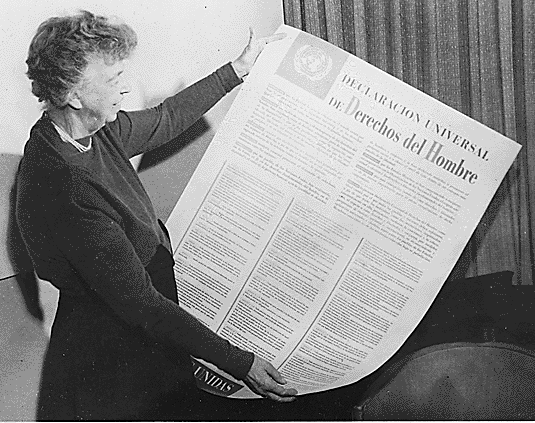The annual report on the work of the Office of the United Nations High Commissioner for Human Rights (OHCHR) in Geneva and New York and in the field between 1 July 2022 and 1 March 2023 was released at the 53rd session of the United Nations Human Rights Council.
In March 2023, OHCHR had 101 human rights field presences around the world.
In its findings, the report highlights:
“The human rights challenges facing the world today are enormous and interrelated. The climate crisis, which threatens the very survival and future of generations to come, cannot be ignored. The international community cannot turn a blind eye to ongoing conflicts, violence and humanitarian crises, such as in Afghanistan, Haiti, Myanmar, Sudan, the Syrian Arab Republic and Ukraine, which have caused untold numbers of victims, suffering and displacement, nor can it neglect the need for social justice and human dignity, which are fundamental to peace and development.”
In relation to the COVID-19 pandemic, it notes the importance of the introduction of effective vaccines and treatments in reducing the pandemic. However, doses remain in short supply in many countries and access to treatment can be difficult. It further notes that the pandemic has had a devastating effect on many children and young people, and the road to recovery from the economic devastation caused by the COVID-19 pandemic in many sectors will be long and difficult. Similarly, he continues, “the pandemic has disrupted every aspect of human life, from health and education to economics and security. It has also exposed and exacerbated the profound inequities that plague the world.”
In the following paragraph, it is reported that “the rollback of women’s rights and gender equality has been increasing and affects all spheres of women’s lives. There has also been an increase in
attacks on the rights of lesbian, gay, bisexual, transgender and intersex persons have also increased. In some cases, anti-gender equality discourse is intermingled with anti-migrant, racist, xenophobic, transphobic, transphobic and homophobic sentiments and narratives.”
“This trend is undermining the universality and fundamental principles of human rights, including non-discrimination and gender equality. The rights of women and girls, in all their diversity, must be upheld and their full and equal participation in decision-making promoted.”
Moreover, the text released devotes an entire paragraph of its conclusions to pointing out the potential serious risks to the enjoyment of human rights from the unprecedented scale of progress in the digital world.
“Technological advances are occurring every day. Progress in artificial intelligence is evolving at an astonishing
technology capable of reading and manipulating minds is no longer far-fetched science fiction, hate speech and misinformation continue to thrive, especially on the internet, and augmented and virtual reality technology is improving. With these trends, human rights challenges will only become more acute. It is time to incorporate the common language of human rights into the way new and emerging technology is regulated, managed, designed and used. Safeguards to protect human rights must be firmly in place at the conception stages of technology and throughout its life cycle. Such barriers are a sine qua non for a technology that serves humanity and the public interest,” the publication states.
The text goes on to state emphatically: “Human rights are not a luxury or a privilege. They are universal values that arose from the ashes of the Second World War, from the determination to prevent such atrocities from ever happening again. They are legal obligations for states to respect, protect and fulfil the rights of all people without discrimination. They are a moral compass guiding everyone towards a more humane and sustainable world.”
Finally, a call is made to seize the opportunity of the 75th anniversary of the adoption of the Universal Declaration of Human Rights and the 30th anniversary of the adoption of
the Vienna Declaration and Programme of Action, to revitalise the global consensus on human rights that led to the adoption of the Universal Declaration of Human Rights and to build on the solid achievements made since then.
With its “Human Rights 75” initiative, OHCHR seeks to promote the universality and indivisibility of human rights, look to the future and strengthen the human rights ecosystem in 2023.
Investing in human rights is not only a duty, but also a wise choice, for the sake of health, security, prosperity, the environment and, ultimately, the wellbeing of all.






